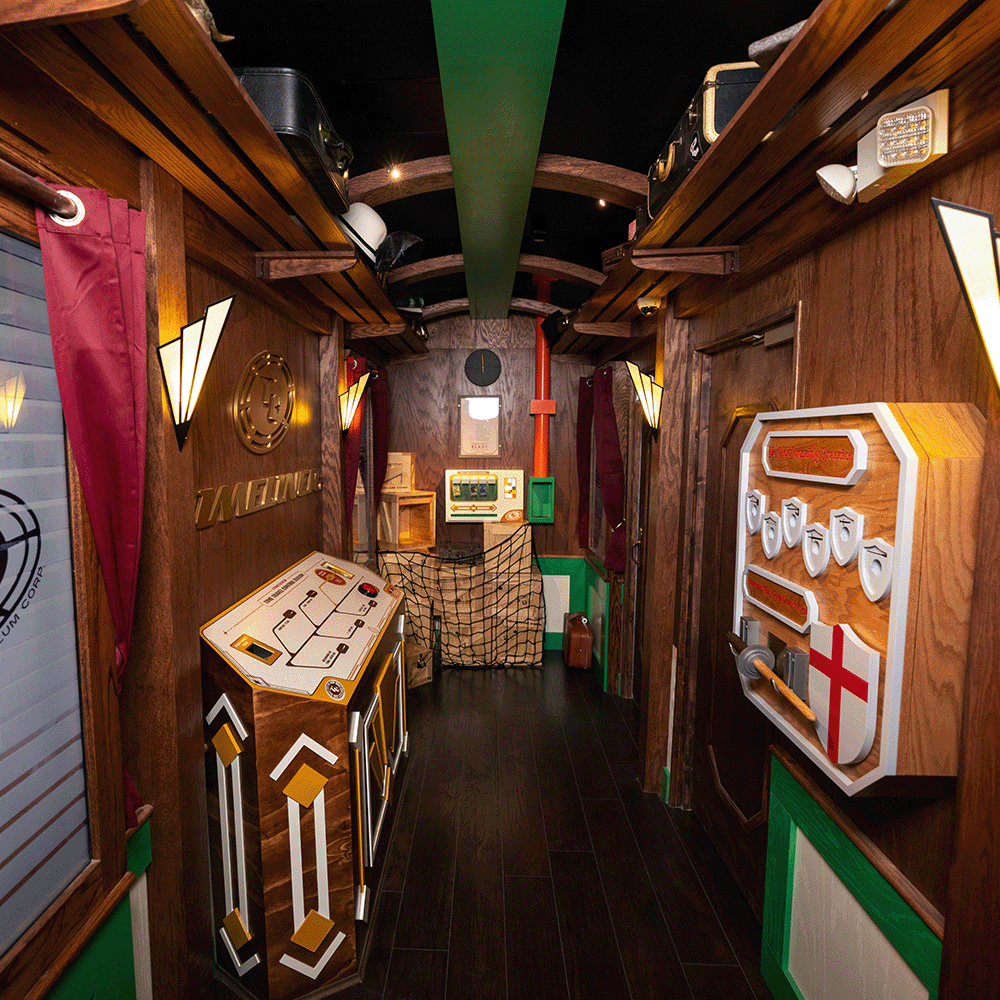Group Tasks at Minneapolis Escape Room-- Perfect for Buddies and Family members
Wiki Article
Team Strategies: Exactly How to Work together Successfully in an Escape Room
Browsing the intricacies of a getaway area demands greater than simple interest; it needs a well-coordinated method based in clear interaction, calculated function tasks, and skilled time monitoring. Groups should actively pay attention per member's understandings, designate functions that straighten with specific staminas, and maintain regular check-ins to ensure focus and prevent redundancy. By cultivating an environment that values communication and adaptability, groups can significantly increase their efficiency and success rates. The subtleties of these techniques can change the experience, yet exactly how precisely can they be carried out to make best use of the capacity for success?Establish Clear Interaction
To help with clear interaction, it is essential to assign a main point of contact for details circulation. Brief, concentrated updates from each group participant can keep the team informed without frustrating them with information.

Designate Duties Purposefully
While clear interaction sets the foundation for effective team effort, designating duties purposefully guarantees that each staff member's staminas are used successfully. In a retreat area situation, the time-sensitive and complicated nature of challenges demands an efficient strategy to job delegation. By identifying and leveraging specific competencies, teams can maximize their problem-solving capacities and boost overall efficiency.Somebody with a keen eye for detail may excel in finding concealed objects, while a rational thinker can be better matched to solving challenges. This role commonly calls for strong business and interpersonal skills.
2nd, guarantee that functions are flexible and versatile. As brand-new challenges arise, the team has to be able to pivot, reallocating tasks as needed. This flexibility helps keep energy and prevents bottlenecks that can happen due to rigid role assignments.
Ultimately, a tactical method to duty job not just optimizes the staminas of each staff member but likewise fosters a cohesive environment, driving the group in the direction of a successful escape.
Utilize Diverse Skills
Acknowledging and using the diverse abilities within your group can significantly raise your performance in an escape space. Each team participant brings distinct strengths to the table, and efficiently leveraging these abilities can speed up analytical and improve total performance. For instance, a staff member with solid logical abilities could succeed at decoding complicated codes or patterns, while one more with eager empirical abilities might quickly identify covert hints that others may forget.
Urge group members to articulate their understandings and concepts promptly, making sure that all prospective services are taken into consideration. Additionally, designating jobs that align with each member's staminas can stop traffic jams and make sure that progression is continuous.
Moreover, diversity in abilities commonly equates to variety in assuming styles, which is invaluable in an escape room setup. While some challenges might call for logical thinking and accuracy, others might gain from creative and lateral reasoning. By acknowledging and leveraging this diversity, groups can deal with a wider variety of difficulties a lot more successfully, thereby increasing their chances of a successful retreat.
Manage Time Successfully

First, designate initial minutes for a quick study of the space. Identify visible problems and divide jobs based on employee' staminas, making certain that nobody is idle. Set interior look at these guys time checkpoints to evaluate progress periodically; for example, goal to have half the problems fixed by the mid-point of the game. This technique can aid maintain the team focused and protect against time from slipping away unnoticed.
In addition, prevent passage vision. If a problem is taking also long, revolve staff member or go on to an additional obstacle, returning later with fresh perspectives. Interaction is extremely important-- keep every person updated on addressed puzzles and continuing to be jobs to stay clear of repetitive initiatives.
Lastly, use any type of hints or hints moderately but tactically - best escape room. Recognizing when to ask for aid can save useful time. By sticking to these time monitoring concepts, groups can dramatically improve their possibilities of an effective and enjoyable getaway area experience
Debrief and Mirror
Representation is a crucial facet of team development and enhancement in the context of escape spaces. As soon as the difficulty is completed, whether effectively or otherwise, it is vital for the group to engage in a structured debriefing session. This procedure enables team participants to examine their efficiency, determine toughness, and identify areas for renovation.Start the debrief by discussing what went well. Highlight certain instances of effective communication, analytical, and cooperation. Identifying these positive habits strengthens them and urges their rep in future difficulties.
Next, attend to the barriers encountered. Talk about minutes of confusion, miscommunication, or ineffective you could try these out techniques. Urge an open and useful discussion where group participants can share their viewpoints without worry of objection. This promotes a society of constant renovation and learning.
Conclusion
In final thought, successful partnership in a getaway room is asserted upon clear interaction, critical role projects, the reliable application of varied abilities, and skilled time management. By producing a cohesive and flexible team environment, the possibility of successfully addressing challenges and accomplishing the goal of leaving the space is visit our website considerably enhanced.Report this wiki page